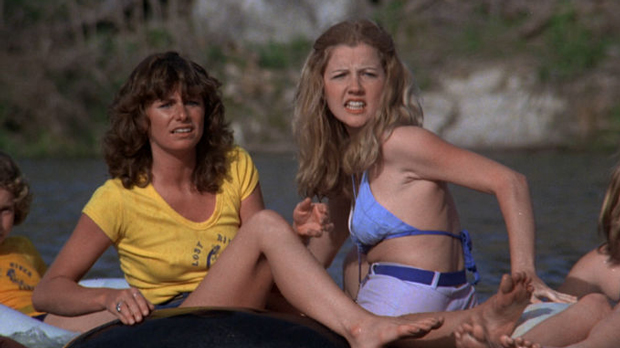 Invisible Life (2019) Amazon/Drama RT: 139 minutes Rated R (strong sexual content, graphic nudity, some drug use) Director: Karim Ainouz Screenplay: Murilo Hauser, Ines Bortagaray and Karim Ainouz Music: Benedikt Schiefer Cinematography: Helene Louvart Release date: January 17, 2020 (Philadelphia, PA) Cast: Carol Duarte, Julia Stockler, Antonio Fonseca, Flavia Gusmao, Barbara Santos, Gregorio Duvivier, Nikolas Antunes, Luana Xavier, Marcio Vito, Hugo Cruz, Maria Manoella, Samuel Toledo, Nelson Ferreira, Andressa Cabral, Lumi Kim, Shirley Cruz, Fernanda Montenegro. Spoken in Portuguese w/English subtitles
Invisible Life (2019) Amazon/Drama RT: 139 minutes Rated R (strong sexual content, graphic nudity, some drug use) Director: Karim Ainouz Screenplay: Murilo Hauser, Ines Bortagaray and Karim Ainouz Music: Benedikt Schiefer Cinematography: Helene Louvart Release date: January 17, 2020 (Philadelphia, PA) Cast: Carol Duarte, Julia Stockler, Antonio Fonseca, Flavia Gusmao, Barbara Santos, Gregorio Duvivier, Nikolas Antunes, Luana Xavier, Marcio Vito, Hugo Cruz, Maria Manoella, Samuel Toledo, Nelson Ferreira, Andressa Cabral, Lumi Kim, Shirley Cruz, Fernanda Montenegro. Spoken in Portuguese w/English subtitles
Rating: *** ½
The Brazilian import Invisible Life is the kind of movie Hollywood doesn’t make anymore. Movies driven by melodrama rather than action set pieces that make up for in scale what they lack in soul. I know I’m always complaining about the Hollywood machine that spits out movies seemingly made on an assembly line as evidenced by their utter lack of originality. As much as I enjoy some of them (e.g. the Marvel movies), they’re empty vessels more pleasing to the eye than the heart or mind. Young people can’t fathom that there was a time when filmgoers (mostly ladies) went to the movies for a good cry. Be it Greta Garbo in Camille or anything by Douglas Sirk (Imitation of Life), melodrama was a popular subgenre in the days before CGI took over.
Nowadays, films like Invisible Life have to be imported. It’s only fitting that it comes from a place that’s home to the telenovela, a Spanish-language soap opera typically defined by overly dramatic storylines and acting. It can be argued that Invisible Life is like a telenovela because in Brazil, such programs tend to be more realistic and apt to broach controversial subjects. Director Karim Ainouz sets his story of two sisters in a time of patriarchal rule when women had no say in the courses their lives took. The father made all the big decisions; the mother and daughters were expected to follow orders. Any female that dared to think for herself was shamed and exiled to the fringes of society. Clearly, the 1950s was NOT a good time to be a woman in Rio de Janeiro.
Guida (Stockler) and Euridice (Duarte) are as close as two sisters can be. They both want to break free of the customs imposed by their conservative, tradition bound father Manoel (Fonseca). Their fate is foreshadowed in the opening moments when they call out to each other after getting separated in the jungle near their house. Euridice, a gifted pianist, wants to attend a conservatory in Vienna while Guida wants a life of adventure and love with a Greek sailor. Guida’s decision to run away to Greece with her lover, only to return home pregnant and alone, causes her father to cast her from the family home in disgrace. When she asks about Euridice, Manoel lies to her about her whereabouts. He tells her she’s in Vienna at the conservatory when she’s really living nearby with her husband Antenor (Duvivier), an older, insensitive sort who basically date-rapes her on their wedding night. He never tells Euridice her sister came home. Being apart and unable to find each other causes great heartache for both sisters.
Invisible Life jumps back and forth between Guida and Euridice as they live their lives separate from each other. Guida ultimately finds happiness with a new makeshift family that includes her son and Filomena (Santos), a former prostitute who becomes her surrogate mother. She has to hold down two jobs to get by, but she has a little more autonomy. Euridice is stifled in her new environment. Her husband expects her to give up her dream of being a concert pianist, demanding that she stay at home in the role expected of her by a male-dominated society. He gets her pregnant against her will so she has even less choice in the matter. The ladies never give up hope that they will be reunited one day. It’s what keeps them going day after day.
Although extremely depressing, Invisible Life envelops the viewer in a warm tropical world of saturated colors as the story ascends to a highly emotionally-charged finale that honors the strong bonds of sisterhood. At the same time, Ainouz never lets one give up hope that the sisters will find each other. There’s this one incredible scene inside a restaurant where the sisters come within seconds of bumping into each other. It’s a well-orchestrated, deftly edited sequence that fills the viewer with optimism and frustration in equal measures.
Not only is Invisible Life a devastating melodrama, it’s also a sharp critique of a society that allows for this kind of thing to happen. I won’t mince words, the father is a bastard. He rejects one daughter in her time of need and allows another to remain ignorant of her homecoming. Even worse, the mother is powerless to do or say anything because of her culture’s gender views. I find it interesting that Ainouz is capable of speaking in a strong feminist voice. It makes one wonder about his upbringing and the strong women that must figure into it.
The acting, especially by Stockler and Duarte, is superb. Both are distinct characters that share a sisterly bond that borders on psychic. Neither one is complete without the other. Their emptiness is deeply felt. This is especially true of Euridice trapped in a loveless marriage to an insensitive boor. Fonseca is suitably hateful as the father whose toxic masculinity brings about the destruction of his family. The performances in Invisible Life are completely believable, another aspect that elevates it to greatness.
Yes, I would definitely say that Invisible Life is great even though it’s a bit overlong. It’s fine though; none of it feels like time wasted. Ainouz slowly builds up to what we already know will be a catharsis. Once the father’s deception is revealed, all emotional hell is bound to break loose. And does it ever! While not for everybody, anybody looking for a good cry at the movies should definitely check it out. Don’t forget the Kleenex, a much better alternative to the Extra Strength Tylenol one must bring with them to the multiplex.




